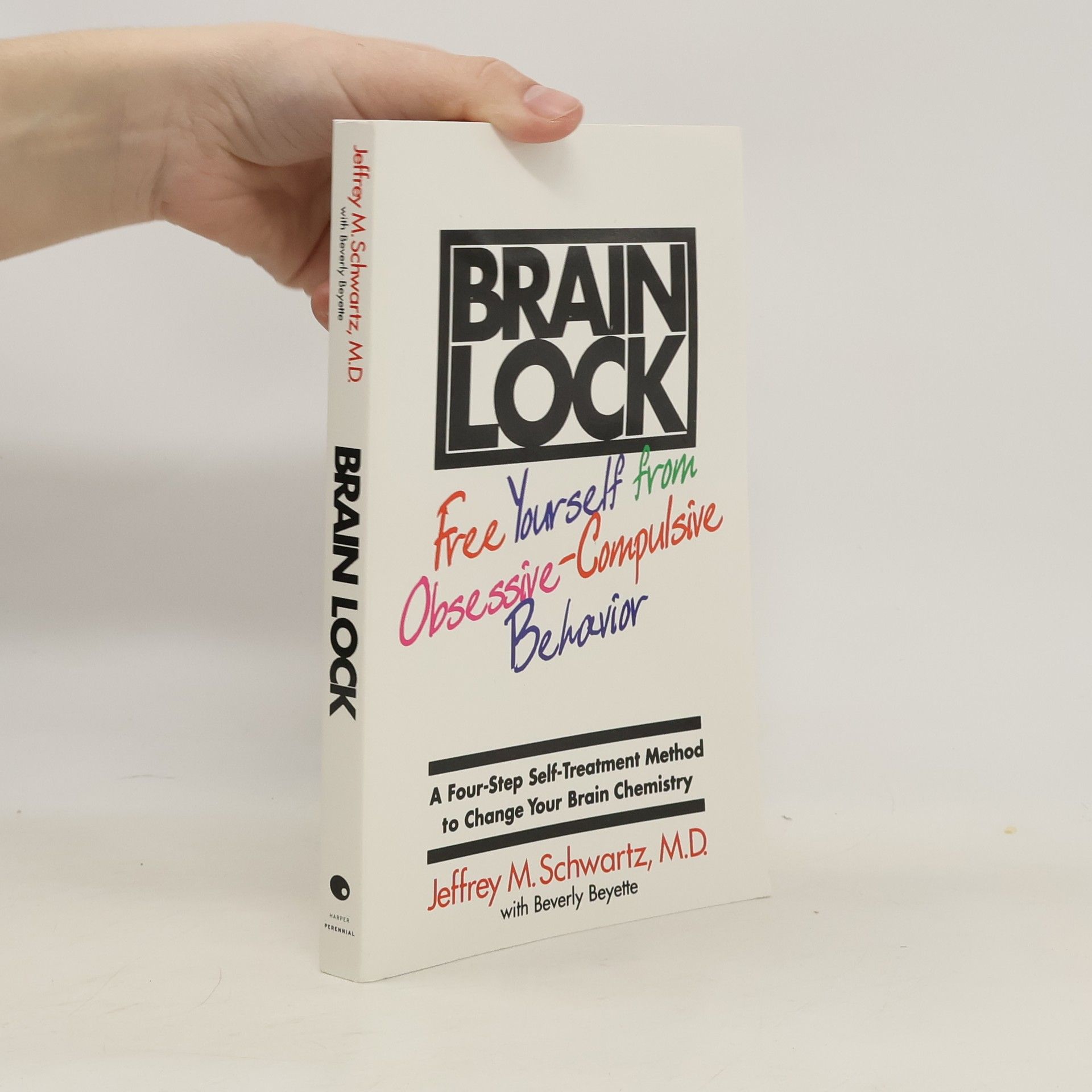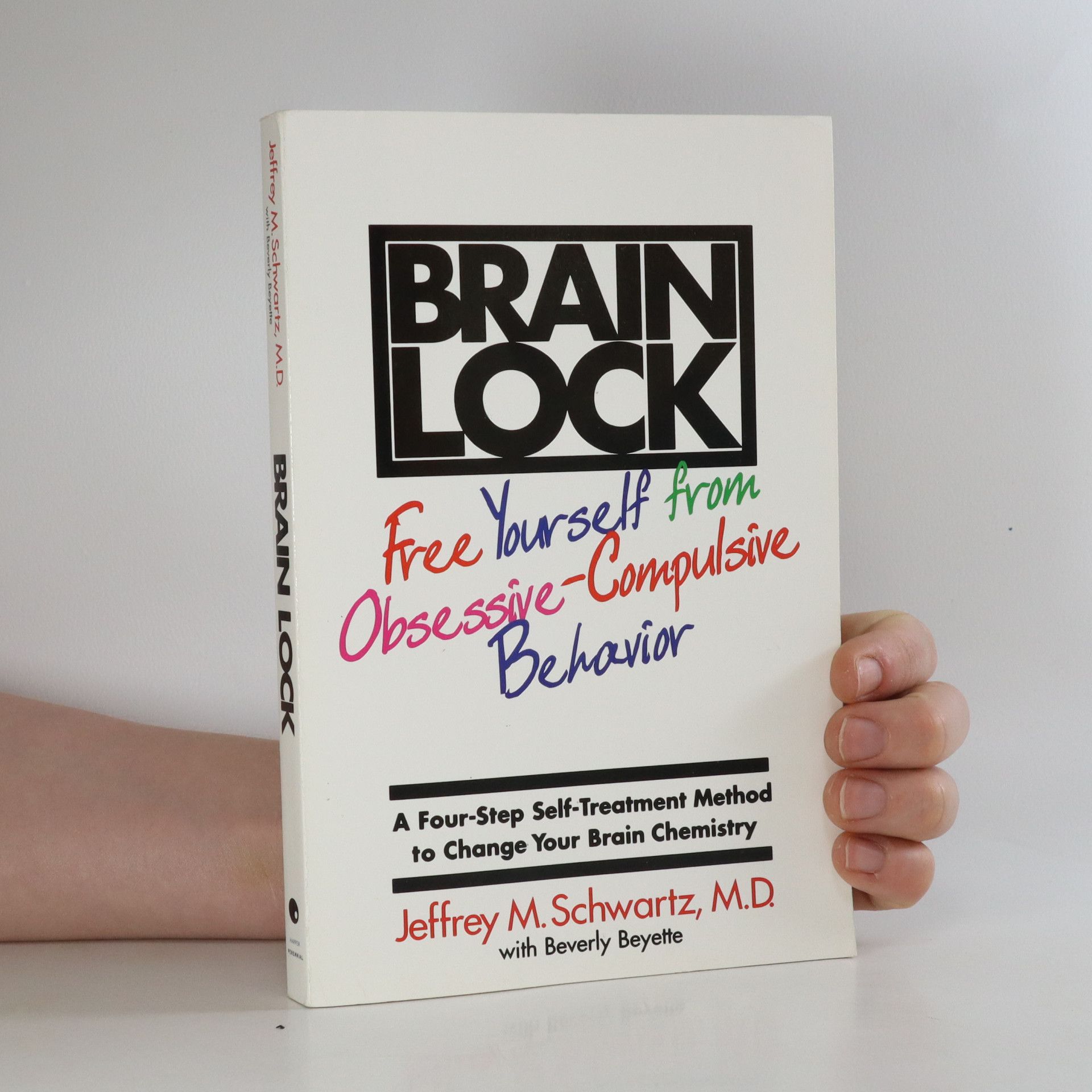The definitive classic that has helped more than 400,000 people defeat obsessive-compulsive behavior, with all-new material from the author An estimated 5 million Americans suffer from obsessive-compulsive disorder (OCD) and live diminished lives in which they are compelled to obsess about something or to repeat a similar task over and over. Traditionally, OCD has been treated with Prozac or similar drugs. The problem with medication, aside from its cost, is that 30 percent of people treated don't respond to it, and when the pills stop, the symptoms invariably return. In Brain Lock, Jeffrey M. Schwartz, M.D., presents a simple four-step method for overcoming OCD that is so effective, it's now used in academic treatment centers throughout the world. Proven by brain-imaging tests to actually alter the brain's chemistry, this method doesn't rely on psychopharmaceuticals. Instead, patients use cognitive self-therapy and behavior modification to develop new patterns of response to their obsessions. In essence, they use the mind to fix the brain. Using the real-life stories of actual patients, Brain Lock explains this revolutionary method and provides readers with the inspiration and tools to free themselves from their psychic prisons and regain control of their lives.
Jeffrey M. Schwartz Libri
Questo autore si addentra nel complesso panorama della mente e del comportamento umano, combinando la precisione di un ricercatore con l'intuizione di un narratore. Il suo lavoro esplora le complessità della psicologia, esaminando temi come la motivazione, la percezione e l'emozione con rigore scientifico e profondità narrativa. Attraverso narrazioni attentamente realizzate e osservazioni acute, l'autore invita i lettori in un viaggio alla scoperta di sé e alla comprensione della condizione umana. La sua voce unica offre un'esplorazione avvincente dei nostri mondi interiori.




The definitive classic that has helped more than 400,000 people defeat obsessive-compulsive behavior, with all-new material from the authorAn estimated 5 million Americans suffer from obsessive-compulsive disorder (OCD) and live diminished lives in which they are compelled to obsess about something or to repeat a similar task over and over. Traditionally, OCD has been treated with Prozac or similar drugs. The problem with medication, aside from its cost, is that 30 percent of people treated don't respond to it, and when the pills stop, the symptoms invariably return.In Brain Lock, Jeffrey M. Schwartz, M.D., presents a simple four-step method for overcoming OCD that is so effective, it's now used in academic treatment centers throughout the world. Proven by brain-imaging tests to actually alter the brain's chemistry, this method doesn't rely on psychopharmaceuticals. Instead, patients use cognitive self-therapy and behavior modification to develop new patterns of response to their obsessions. In essence, they use the mind to fix the brain.Using the real-life stories of actual patients, Brain Lock explains this revolutionary method and provides readers with the inspiration and tools to free themselves from their psychic prisons and regain control of their lives.
Mózg ma ogromny wpływ na życie człowieka, często w sposób negatywny. Gdy przejmuje kontrolę nad myślami, może podważać poczucie własnej wartości, wywoływać nieuzasadniony lęk, obwiniać za rzeczy, na które nie mamy wpływu, oraz prowadzić do powielania niepożądanych wzorców zachowań. Taki stan obniża jakość życia, sprawiając, że osoba staje się nieszczęśliwa i nie wykorzystuje swojego potencjału. Książka ta oferuje rozwiązanie, pokazując, jak przejąć kontrolę nad mózgiem i skierować go na właściwe tory. Opisana metoda czterech kroków pozwala na identyfikację i tłumienie zwodniczych komunikatów, co umożliwia skupienie się na korzystnych działaniach. Dzięki temu można przeprogramować mózg w zdrowy sposób, co prowadzi do pozytywnych zmian w życiu. Staniesz się osobą, którą naprawdę chcesz być, podejmując mądre decyzje i wzmacniając swoje prawdziwe ja. W książce znajdziesz informacje o zwodniczych komunikatach, metodzie czterech kroków, praktycznych wskazówkach oraz sposobach na pokonywanie problemów podczas wdrażania tej metody. To Twoja droga do prawdziwej wolności!
Zwangshandlungen und wie man sich davon befreit
- 351pagine
- 13 ore di lettura
Von Howard Hughes ist bekannt, daß er unter starken Zwangsstörungen litt, sich mehr als 60mal am Tag die Hände waschen mußte, in der Öffentlichkeit aus Angst vor Keimen keine Türklinken anrühren konnte und schließlich vereinsamt und abgeschirmt von Viren, Bakterien und Mitmenschen sein Lebensende verbrachte. Nach mehr als zehn Jahren Forschungsarbeit hat Jeffrey M. Schwartz ein Programm zur Selbstbehandlung von Zwangsstörungen entwickelt. Diese Methode in vier Schritten lehrt zunächst, die lästigen Impulse als Zwangshandlung mit wenig oder keinem Realitätsbezug neu zu benennen. Dann werden die Triebe ihren wirklichen Ursprüngen entsprechend neu zugeordnet. Schließlich werden die Zwangshandlungen neu bewertet als etwas, das keine wirkliche Beachtung verdient.